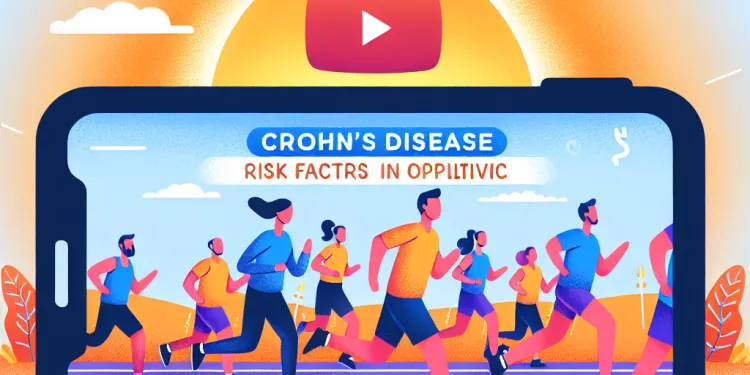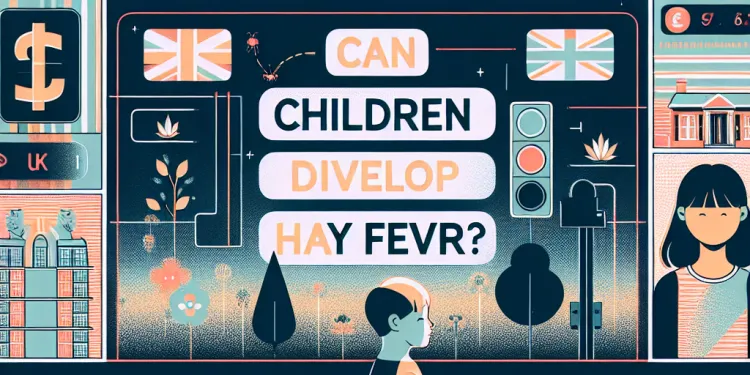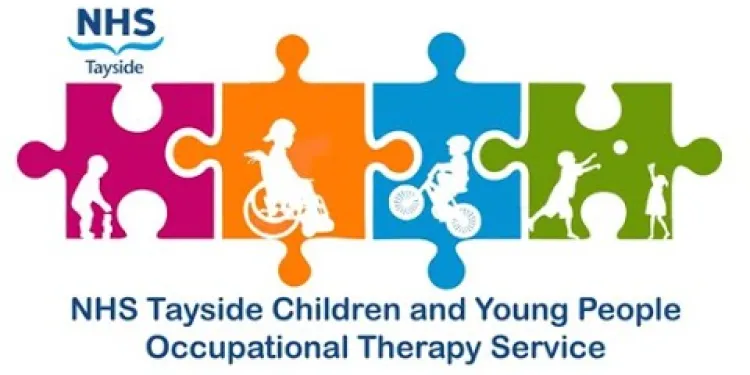
Find Help
More Items From Ergsy search
-

How does the National Trust support career development?
Relevance: 100%
-

What are the career progression opportunities for NHS nurses?
Relevance: 75%
-

How can I advance my career as a primary care support worker?
Relevance: 72%
-

What is the impact of a professional negligence claim on a professional's career?
Relevance: 61%
-

Teachers Pension Explained | All you need to know | Final Salary & Career Average Earnings
Relevance: 50%
-

What support systems are available to NHS nurses for continuing professional development?
Relevance: 46%
-

How physically demanding is a career in NHS nursing?
Relevance: 45%
-

What skills are important for a career in nursing?
Relevance: 44%
-

Who is at risk of developing eczema?
Relevance: 44%
-

Who is at risk of developing shingles?
Relevance: 44%
-

Who is at risk for developing BPH?
Relevance: 44%
-

Who is at risk of developing SAD?
Relevance: 43%
-

Who developed the Paillon treatment?
Relevance: 41%
-
Who is at risk for developing an eating disorder?
Relevance: 41%
-

Who is at risk of developing Crohn's disease?
Relevance: 40%
-

Who is at risk of developing chronic fatigue syndrome?
Relevance: 40%
-

Can nut allergies develop later in life?
Relevance: 39%
-

Can children develop Crohn's disease?
Relevance: 39%
-

Who is at risk of developing Alzheimer's disease?
Relevance: 39%
-

Can children develop hay fever?
Relevance: 39%
-

Has a vaccine been developed against Nipah Virus?
Relevance: 38%
-

Are there any risk factors for developing hypotony?
Relevance: 37%
-

Who is at risk of developing shingles?
Relevance: 37%
-

Can children develop chronic fatigue syndrome?
Relevance: 37%
-

What are risk factors for developing sleep apnea?
Relevance: 37%
-

Developmental Coordination Disorder (DCD) for Children and Young People
Relevance: 36%
-

How are vaccines developed?
Relevance: 35%
-

How common is it for women to develop dementia after menopause?
Relevance: 34%
-

Are there mentorship programs for community helpers?
Relevance: 32%
-

How can I become an NHS Nurse in the UK?
Relevance: 32%
-

The Pelvic Floor Muscles - Developing an Exercise Programme
Relevance: 31%
-

Is mentorship available for primary care support workers?
Relevance: 31%
-

Join our echocardiography team
Relevance: 30%
-

Are there any recent treatments or research developments for nut allergies?
Relevance: 30%
-

Redundancy Coaching Couch 2: Redundancy and Passion
Relevance: 29%
-

What role does diet play in the risk of developing bowel cancer?
Relevance: 29%
-

What are National Trust Jobs?
Relevance: 29%
-

Is prior experience required to work at the National Trust?
Relevance: 29%
-

Does drinking coffee every morning increase the risk of developing high blood pressure?
Relevance: 28%
-

What types of positions are available at the National Trust?
Relevance: 28%
Introduction to the National Trust
The National Trust is a well-known conservation organization in the UK, committed to preserving the nation’s heritage and natural spaces. Beyond its mission of conservation, it also offers numerous opportunities for career development to individuals passionate about heritage, conservation, and nature.
Professional Development Programs
The National Trust is dedicated to nurturing talent through a diverse array of professional development programs. These programs are designed to equip individuals with the skills and knowledge necessary to excel in their chosen fields. From internships to graduate programs, the organization offers structured learning opportunities that allow participants to gain hands-on experience while working with experts in heritage conservation, environmental management, and other areas.
Apprenticeships
The National Trust offers apprenticeship schemes in various sectors, including horticulture, visitor experience, building surveying, and countryside management. These apprenticeships provide an excellent pathway for individuals to gain valuable skills and industry-recognized qualifications. While apprentices earn as they learn, they are also able to contribute meaningfully to the preservation of historic sites and natural landscapes.
Training and Workshops
A key aspect of the National Trust’s approach to career development is its commitment to continual learning. The organization provides its staff and volunteers with access to a range of training sessions and workshops. These sessions cover a wide array of topics, from leadership and management to technical skills necessary for conservation work. Such training ensures that employees and volunteers are not only equipped to handle their current roles but are also prepared for future career advancements.
Networking and Mentorship Opportunities
Working with the National Trust enables individuals to connect with a vast network of professionals dedicated to the field of conservation. The organization encourages mentoring relationships between experienced personnel and those new to the sector. These mentorship opportunities are invaluable for career growth, as they offer guidance, support, and insights from seasoned professionals.
Volunteering as a Stepping Stone
Volunteering with the National Trust is not only a way to give back to the community but also a route to career development. Volunteers gain firsthand experience in various roles and can leverage this experience to pursue a full-time career with the organization or elsewhere in the industry. The skills developed while volunteering, such as teamwork, leadership, and problem-solving, are highly transferable and valued by employers.
Conclusion
The National Trust is committed to supporting career development through a variety of initiatives that include professional development programs, apprenticeships, and continued training. These initiatives help individuals build rewarding careers while contributing to the vital work of conserving the UK's historic and natural heritage. By fostering an environment of growth and learning, the National Trust not only preserves the past but also invests in the future of conservation.
Introduction to the National Trust
The National Trust is a well-known group in the UK. They take care of old buildings and natural places. They want to save these important places for everyone. They also help people who want to work with nature and history by offering jobs and learning opportunities.
Learning and Growth Programs
The National Trust helps people learn and grow through special programs. These programs teach the skills needed to do the job well. They have internships and programs for new graduates. Participants learn by working with experts in taking care of nature and history.
Apprenticeships
The National Trust offers ways to learn and work at the same time, called apprenticeships. You can learn about gardening, helping visitors, building care, and managing the countryside. Apprentices get to learn new skills and earn qualifications while working to protect important places.
Training and Workshops
The National Trust believes in always learning new things. They provide training and workshops for their workers and volunteers. These sessions teach leadership, management, and technical skills for conservation. This helps everyone be ready for new job roles in the future.
Meeting and Learning from Others
Working with the National Trust allows people to meet many professionals who care about nature and history. They encourage experienced workers to mentor newcomers. Mentoring helps people get advice, support, and learn from others who know a lot about the job.
Volunteering as a Starting Point
Volunteering with the National Trust is a great way to learn and help. Volunteers gain experience in different roles. This experience can help them get a full-time job with the Trust or with other similar jobs. The skills learned like working with others, leading, and solving problems are important for many jobs.
Conclusion
The National Trust supports people who want to develop their careers. They offer training programs, apprenticeships, and more learning opportunities. These help people build successful jobs while helping to save the UK's important places. By supporting learning and growth, the National Trust protects the past and invests in the future of conservation.
Frequently Asked Questions
What opportunities does the National Trust offer for career development?
The National Trust offers a variety of opportunities including training programs, workshops, mentorship, and access to industry networks.
Does the National Trust provide training sessions for employees?
Yes, the National Trust provides training sessions that focus on enhancing skills relevant to heritage conservation, management, and customer service.
Are there mentorship programs available at the National Trust?
Yes, the National Trust offers mentorship programs where experienced professionals guide employees in career progression.
Can I access online learning resources through the National Trust?
Yes, employees have access to a range of online learning modules and resources to further their education and skills.
Does the National Trust support professional qualifications?
Yes, the National Trust often supports employees pursuing professional qualifications related to their roles.
Are there opportunities for career advancement within the National Trust?
Yes, the organization promotes a culture of internal advancement, providing opportunities for employees to apply for new positions.
What kind of workshops does the National Trust offer?
The National Trust offers workshops on topics such as leadership, project management, conservation techniques, and customer engagement.
How does the National Trust assist employees in setting career goals?
Employees are encouraged to set career goals during regular development reviews with their managers, who provide feedback and guidance.
Does the National Trust offer leadership development programs?
Yes, leadership development programs are available to prepare employees for managerial and leadership roles within the Trust.
Are job rotations possible within the National Trust?
Job rotations are encouraged to help employees gain experience and skills in different areas of the organization.
Does the National Trust provide support for continuing education?
Yes, employees can receive support for part-time studies and courses that align with their job roles.
What is the role of performance reviews at the National Trust?
Performance reviews are conducted regularly to evaluate employee progress, discuss achievements, and identify areas for development.
Are there networking opportunities within the National Trust?
Yes, the National Trust organizes events and forums that enable employees to network with peers and industry experts.
How does the National Trust help with skill enhancement?
Skill enhancement programs are in place to help employees develop necessary skills for their current and future roles.
Does the National Trust have an employee exchange program?
In some cases, employees may participate in exchange programs with similar organizations to gain new perspectives and skills.
How do team projects contribute to career development at the National Trust?
Participating in team projects enhances collaboration, problem-solving skills, and provides experience in different areas of work.
What role does feedback play in career development at the National Trust?
Feedback is crucial as it helps employees understand their strengths and areas for improvement, fostering personal and professional growth.
Does the National Trust encourage innovation and new ideas?
Yes, the organization values innovation and encourages employees to propose and work on new ideas that can benefit the Trust.
How does the National Trust support career transitions within the organization?
The National Trust supports career transitions by offering resources and guidance to employees seeking to move into new roles.
What is the importance of career development at the National Trust?
Career development is important as it helps retain talented employees, ensures they have the skills needed for current and future roles, and contributes to their personal satisfaction and motivation.
What jobs can you grow into with the National Trust?
The National Trust gives you lots of chances to learn and grow. You can join training programs where you learn new skills. There are workshops to teach you things. You can have a mentor who helps and guides you. You also get to meet lots of people who work in the same field.
Does the National Trust help its workers learn new things?
The National Trust helps its workers learn.
If you work there, you might go to training sessions.
Training sessions are like special classes.
In these classes, you can learn new skills for your job.
If you want to know more, ask someone at work for help.
You can also use tools like pictures or charts to understand better.
Yes, the National Trust gives training to help people learn important skills. These skills help with looking after old buildings and places, managing these sites, and helping visitors.
Can I find a mentor at the National Trust?
Would you like someone to help and guide you at the National Trust? The National Trust might have special programs where a mentor can help you learn and grow. A mentor is like a friendly helper who teaches you new things and supports you.
If you think you need support, you can ask the National Trust if they have any mentorship programs.
Yes, the National Trust has programs where experienced people help workers grow in their careers.
Can I use online learning tools from the National Trust?
Yes, you can! The National Trust has online tools to help you learn. They have fun and easy things to read and do. If you find reading hard, you can use tools like a dictionary to help with words. You can also ask someone to read with you. Have fun learning online with the National Trust!
Yes, workers can use online lessons and tools to learn more and get better at their jobs.
Does the National Trust help with job training?
The National Trust likes to help workers get better at their jobs.
Can you get better jobs at the National Trust?
Yes, the company helps workers get better jobs inside the company. Workers can try out for new jobs when they open up.
What workshops does the National Trust have?
The National Trust runs different types of workshops. A workshop is a place where you learn new things or make stuff.
Here are some examples of workshops you might find:
- Learning about nature, like trees or animals.
- Making crafts, like painting or building with wood.
- Exploring history in old houses or castles.
If you need help understanding the workshops, you can:
- Ask a family member or friend to explain.
- Look for pictures or videos about the workshops.
The National Trust has classes where you can learn different things. Some classes teach you how to be a leader. Some teach you how to manage projects. Others show you how to take care of nature. And some classes help you learn how to talk to and work with customers better.
How does the National Trust help workers decide what they want to do in their jobs?
Workers should talk about job goals when they meet with their bosses. Bosses will help and give advice.
Does the National Trust have programs to help people become better leaders?
The National Trust can help you learn to be a good leader. They have special classes and activities for this. You can ask someone at the National Trust if you want to know more. They can also tell you how to join these programs.
If reading is hard, you can use tools like pictures or audio books to help understand. Asking someone for help can also be a good idea.
Yes, there are special programs to help workers get ready to be leaders and managers in the Trust.
Can I switch jobs at the National Trust?
Yes, you can change jobs within the National Trust. This is called a job rotation. Job rotation is when you try a new job for a while.
If you think about switching jobs, talk to your manager. Your manager can help you understand how it works. You might also need to learn new things for the new job.
To help you learn, you can use tools like simple language guides or online courses. It’s also good to ask for advice from someone who knows about the job you want to try.
Job rotations help workers learn new things and get better at their jobs. They get to try different tasks in the company.
Does the National Trust help people keep learning?
The National Trust might offer programs or help for people who want to keep learning new things. You can visit their website or ask someone at a National Trust place for more information.
Using tools like picture books, simple videos, or asking someone to explain can make learning easier.
Yes, workers can get help for studying part-time or taking courses that match their jobs.
What do performance reviews do at the National Trust?
Performance reviews are meetings. Bosses and workers talk. They see how the worker is doing. They talk about what the worker is good at. They also talk about what the worker can get better at.
This helps workers know how to do their jobs well. It helps workers feel good about their work. It also helps the team work better together.
Tools to help: Workers can use a notebook. They can write down what they are doing well. They can also write what they need to get better at. This helps them remember and improve.
Performance reviews happen often. They are meetings to talk about how well employees are doing, celebrate what they have achieved, and find areas to help them get better.
Here are some tools and techniques that might help:
- Use simple words: Try to use easy words and short sentences.
- Visual aids: Use pictures and charts to help explain things.
- Take breaks: Take short breaks to help focus better.
Can I Meet New People at the National Trust?
Is the National Trust a place where I can make new friends and talk to people who like the same things as me?
Think about joining groups or going to events. This can help you meet others.
Using pictures and videos can make learning about the National Trust more fun and easy.
Yes, the National Trust has events and meetings where workers can meet and talk with other people and experts.
How does the National Trust help people learn new skills?
The National Trust helps people learn new things. They have fun activities and classes. You can join to improve how you work or play. Ask for help if you need it. It's okay to learn at your own pace.
Tools that can help:
- Get help from a friend or teacher.
- Use simple books or videos to learn.
- Practice your new skills often.
There are programs to help workers learn new skills. These skills help them do their jobs better now and in the future.
Can National Trust workers swap jobs with other places?
Sometimes, workers can swap places with people in other similar jobs. This helps them learn new things and get better at their job.
How do team projects help you grow in your career at the National Trust?
Working on a team project means you work with other people to get a job done. This can help you learn new skills and get better at your job.
When you work in a team at the National Trust, you can:
- Learn from others
- Try new things
- Get better at talking and listening
- Help solve problems
These skills can help you do well in your job and grow in your career.
Here are some tools and tips to help you in team projects:
- Ask questions if you don’t understand something
- Use a calendar to remember important dates
- Make a list of tasks to help you stay on track
Working on team projects helps you learn to work with others. It helps you solve problems and learn new things.
How does feedback help people grow in their jobs at the National Trust?
Getting feedback means others tell you what you do well and what you can do better. This helps you learn and improve your work skills.
Feedback can come from your boss or your work friends. It is important to listen to their advice.
If you want to get better at your job, ask for feedback often. It helps you know how to do your job better and grow in your career.
You can use a notepad to write down tips and ideas you get from feedback. Reading these notes later can remind you of what to work on.
Learning from feedback helps you feel more confident and do your job well.
Feedback is very important. It helps workers know what they are good at and what they can get better at. This helps them grow and learn new things.
Does the National Trust like new ideas?
Yes, the organization likes new and clever ideas. It wants workers to share and work on these ideas to help the Trust get better.
How does the National Trust help people change jobs in the organization?
The National Trust helps staff find new jobs inside the organization. They offer training and support. This helps staff learn new skills. It also helps them move to different roles.
If you need help changing jobs, you can ask a manager or a mentor. They give advice and support. The National Trust also runs courses where you can learn more skills.
Using apps and websites can also be helpful. They help you learn and practice new skills anytime.
The National Trust helps people who work for them to switch to new jobs. They give advice and tools to make this change easier.
Why is career development important at the National Trust?
Career development is about learning and growing in your job. At the National Trust, it helps people become better at what they do. This can make the National Trust a better place.
Developing in your career can help you learn new skills. It can also help you feel good about your work. This is important for both you and the National Trust.
To help with career development, you can:
- Ask for feedback from your boss or friends at work.
- Take training courses to learn new things.
- Set goals for your job and work towards them.
Career development means helping people learn and grow in their jobs. It is important because:
- It helps keep good workers.
- It makes sure workers have the skills they need now and later.
- It makes workers feel happy and motivated.
Some tools that can help with learning are:
- Online courses to learn new things.
- Mentors to guide and support.
- Workshops to practice skills.
Useful Links
This website offers general information and is not a substitute for professional advice.
Always seek guidance from qualified professionals.
If you have any medical concerns or need urgent help, contact a healthcare professional or emergency services immediately.
Some of this content was generated with AI assistance. We’ve done our best to keep it accurate, helpful, and human-friendly.
- Ergsy carfully checks the information in the videos we provide here.
- Videos shown by Youtube after a video has completed, have NOT been reviewed by ERGSY.
- To view, click the arrow in centre of video.
- Most of the videos you find here will have subtitles and/or closed captions available.
- You may need to turn these on, and choose your preferred language.
- Go to the video you'd like to watch.
- If closed captions (CC) are available, settings will be visible on the bottom right of the video player.
- To turn on Captions, click settings .
- To turn off Captions, click settings again.
More Items From Ergsy search
-

How does the National Trust support career development?
Relevance: 100%
-

What are the career progression opportunities for NHS nurses?
Relevance: 75%
-

How can I advance my career as a primary care support worker?
Relevance: 72%
-

What is the impact of a professional negligence claim on a professional's career?
Relevance: 61%
-

Teachers Pension Explained | All you need to know | Final Salary & Career Average Earnings
Relevance: 50%
-

What support systems are available to NHS nurses for continuing professional development?
Relevance: 46%
-

How physically demanding is a career in NHS nursing?
Relevance: 45%
-

What skills are important for a career in nursing?
Relevance: 44%
-

Who is at risk of developing eczema?
Relevance: 44%
-

Who is at risk of developing shingles?
Relevance: 44%
-

Who is at risk for developing BPH?
Relevance: 44%
-

Who is at risk of developing SAD?
Relevance: 43%
-

Who developed the Paillon treatment?
Relevance: 41%
-
Who is at risk for developing an eating disorder?
Relevance: 41%
-

Who is at risk of developing Crohn's disease?
Relevance: 40%
-

Who is at risk of developing chronic fatigue syndrome?
Relevance: 40%
-

Can nut allergies develop later in life?
Relevance: 39%
-

Can children develop Crohn's disease?
Relevance: 39%
-

Who is at risk of developing Alzheimer's disease?
Relevance: 39%
-

Can children develop hay fever?
Relevance: 39%
-

Has a vaccine been developed against Nipah Virus?
Relevance: 38%
-

Are there any risk factors for developing hypotony?
Relevance: 37%
-

Who is at risk of developing shingles?
Relevance: 37%
-

Can children develop chronic fatigue syndrome?
Relevance: 37%
-

What are risk factors for developing sleep apnea?
Relevance: 37%
-

Developmental Coordination Disorder (DCD) for Children and Young People
Relevance: 36%
-

How are vaccines developed?
Relevance: 35%
-

How common is it for women to develop dementia after menopause?
Relevance: 34%
-

Are there mentorship programs for community helpers?
Relevance: 32%
-

How can I become an NHS Nurse in the UK?
Relevance: 32%
-

The Pelvic Floor Muscles - Developing an Exercise Programme
Relevance: 31%
-

Is mentorship available for primary care support workers?
Relevance: 31%
-

Join our echocardiography team
Relevance: 30%
-

Are there any recent treatments or research developments for nut allergies?
Relevance: 30%
-

Redundancy Coaching Couch 2: Redundancy and Passion
Relevance: 29%
-

What role does diet play in the risk of developing bowel cancer?
Relevance: 29%
-

What are National Trust Jobs?
Relevance: 29%
-

Is prior experience required to work at the National Trust?
Relevance: 29%
-

Does drinking coffee every morning increase the risk of developing high blood pressure?
Relevance: 28%
-

What types of positions are available at the National Trust?
Relevance: 28%


